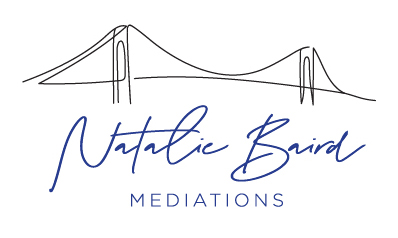At this time Natalie is offering mediation services only

Divorce is a difficult thing. It can be a very emotional and stressful time in the lives of you and your family. If you live in Tampa or Clearwater and you have already decided that the marriage cannot be saved, you might begin looking for a divorce mediator. Natalie Baird is a Supreme Court certified mediator and a Board Certified attorney specializing in family law and marital law.
A divorce mediator is very different from a divorce lawyer. A divorce mediator is a neutral 3rd party that you and your spouse can meet with and decide the terms of your divorce. A divorce mediator does not represent a certain person, but rather provides information to couples that want to make their own decisions about a divorce. Natalie Baird is one of the few mediators that actually provides video conferencing so you can meet over the internet, rather than in person. We like to call it virtual mediation. With the current health concerns, it’s one of the best ways everyone can stay safely separated and still attain an amicable divorce.
There are a few questions that you might have about a divorce mediator in Tampa or Clearwater:
- What can I expect at a divorce mediation?
- What is discussed at a divorce mediation?
- How do I prepare for divorce mediation?
These are very important questions, so let’s go over them.
What can I expect at a divorce mediation?
During the mediation, you will give your divorce mediator background information regarding your situation. Natalie Baird will help both you and your spouse outline the issues that are important to you, and the outcomes you are wanting during the settlement. Many times, issues that are important to you, are important to your spouse as well. The mediator will help both parties attempt to negotiate an agreement that is acceptable for everyone.
What is discussed at a divorce mediation?
Common issues that are important to both parties can include children and co-parenting concerns, shared marital assets, debt, and real estate, to name a few. In most divorce mediation, both parties are able to achieve an agreement without going to court.
How do I prepare for a divorce mediation
First, understand that divorces can be incredibly stressful. Emotion and uncertainty about the future can fuel tension between spouses seeking divorce. Our job at Natalie Baird mediations in Tampa is to help both sides communicate effectively to achieve the goals that both parties can be happy with.
Second you will need to gather all of your paperwork and relevant information regarding your life during your marriage in the Tampa Bay area. This can include pay stubs, w-2s, a list of assets and any other documentation you feel would be important during the mediation process.
Natalie Baird Mediations in Tampa Florida is here to help you and your spouse negotiate the most amicable divorce possible. Using our virtual mediation system, we can help you stay safe in Tampa or Clearwater. If you like more information please fill out the form to the left or give us a call at 1-813-440-9975
Who Controls the Process
Collaborative:
You and your spouse control the process and make final decision
Litigation:
Judge controls process and makes final decisions
Degree of Adversity
Collaborative:
You and your spouse pledge mutual respect and openness.
Litigation:
Court process is based on an adversarial system
Cost
Collaborative:
Costs are manageable, usually less expensive than litigation; team model is financially efficient in use of expert
Litigation:
Costs are unpredictable and can escalate rapidly including frequency of post-judgement litigation
Timetable
Collaborative:
You and your spouse create the timetable
Litigation:
Judge sets the timetable: often delays given crowded court calendar
Use of Outside Experts
Collaborative:
Jointly retained specialists provide information and guidance helping you and your spouse develop informed, mutually beneficial solution
Litigation:
Separate experts are hired to support the litigants’ positions, often at a great expense to each
Involvement of Lawyers
Collaborative:
Your lawyers work toward a mutually created settlement
Litigation:
Lawyers fight to win, but someone will lose
Privacy
Collaborative:
The process and discussion or negotiation details are kept private
Litigation:
Dispute becomes a matter of public record and sometimes media attention
Facilitation of Communication
Collaborative:
Team of collaborative practice specialists educate and assist you and your spouse on how to effectively communicate with each other
Litigation:
No process designed to facilitate communication
Voluntary vs. Mandatory
Collaborative:
Voluntary
Litigation:
Mandatory if no agreement
Lines of Communication
Collaborative:
You and your spouse communicate directly with the assistance of members of your team
Litigation:
You and your spouse negotiate through your lawyers
Court involvement
Collaborative:
Outside court
Litigation:
Court-based
